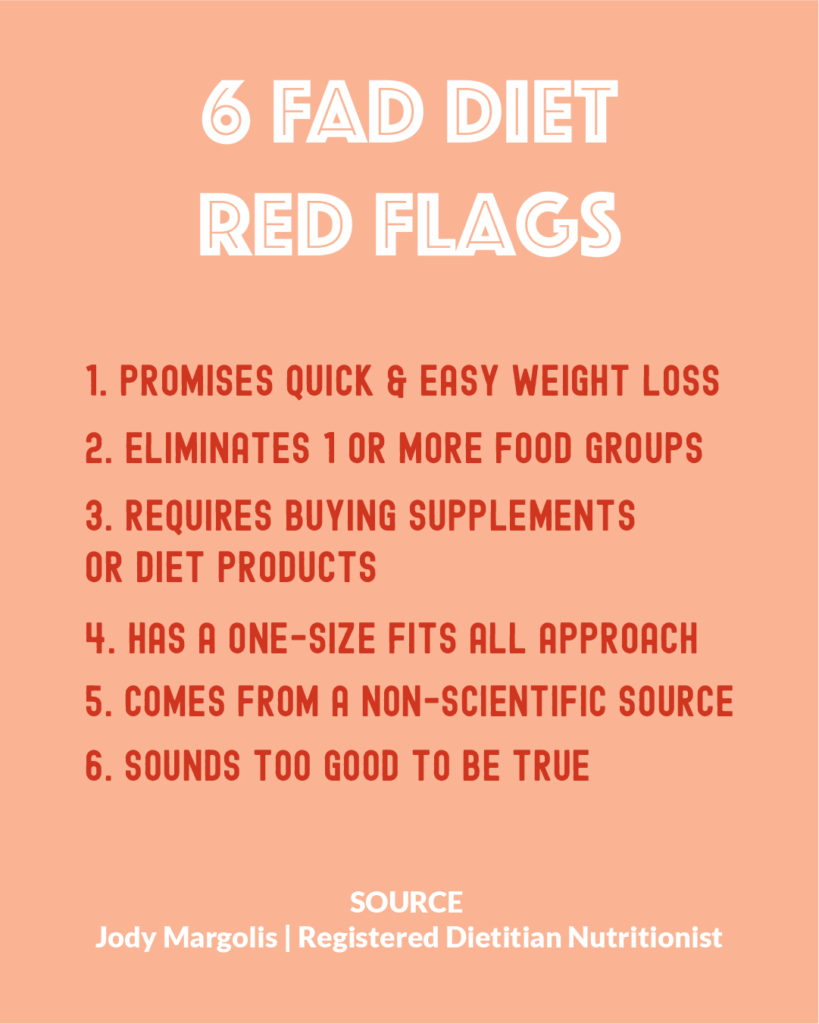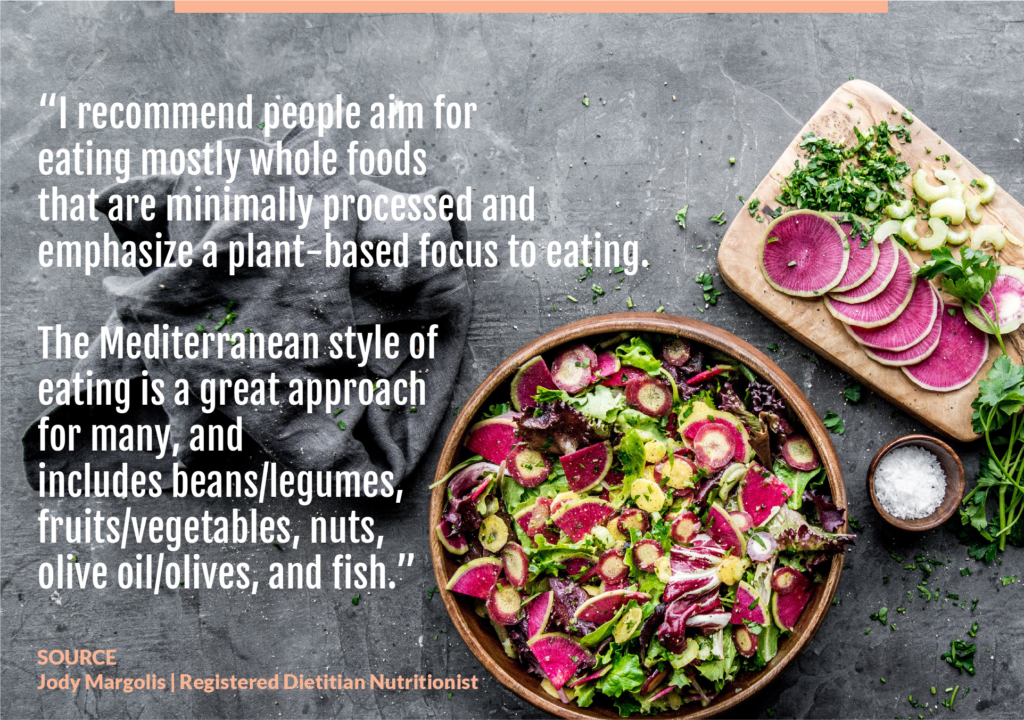Are you curious about intermittent fasting (IF)? On Oct. 22, the search terms “intermittent fasting” and “celery juice” reached peak popularity in Google search, and it’s not a surprise. Jennifer Aniston was interviewed by Radio Times and had this to say:
“I do intermittent fasting, so there’s no food in the morning.”
Jennifer Aniston | Radio Times
“I noticed a big difference in going without solid food for 16 hours.”
“Today I woke up and had a celery juice.” Then I started to brew some coffee, but I don’t drink coffee that early.”
Celebrities generally lead the trends when it comes to weight-loss regimens, but it doesn’t mean they’re for everyone.
What is Intermittent Fasting (IF)?
According to Jody Margolis, a Registered Dietitian Nutritionist (RDN), IF is a diet that focuses on the “when” of eating vs. the “what”. Here’s how she explains it:
16:8
You eat for 8 hours a day (ideally during day time hours) and fast for 16 hours.
BENEFITS: This helps to match eating to day/night cycles and may promote better sleep and overall metabolic health. The 16:8 also tends to help people to avoid late pm boredom or stress eating of typically processed foods which is a positive change.
Jennifer Aniston follows the 16:8 method. She goes without “solid food” for 16 hours, which means that she can have liquids, such as juice.
5:2
This method calls for 5 days of normal eating and 2 days of eating no more than 25% of calorie needs. Generally a person would eat normally for 3 days, “fast” for one day, eat normally for 2 days, and “fast” again.
NOTE: The 5:2 method of IF is harder to follow and can lead to binge eating.
Focusing on time makes the IF (intermittent fasting) diet relatively simpler to follow, and that is part of why we need more professionals to join the conversation.
The Current Research on Intermittent Fasting
“Research indicates that intermittent fasting is no more effective in promoting weight loss than other conventional diets. It can be a reasonable approach to health and a healthier weight depending on what type of IF the person is following.“
For Margolis, “sustainability” is key in choosing a diet. Is this something you can follow long term? How will this diet affect your overall health and well-being?

Although timing when you eat is the centerpiece of an IF diet, WHAT you eat will also matter.
While the IF diet holds some promise, those who are still growing, pregnant/breastfeeding, or have a history of eating disorders or have diabetes should avoid IF or consult with their physician or dietitian first.
On assessing diets, Margolis focuses on “overall health and well-being vs. weight”. In dealing with clients, It’s important for her to understand “why” the person is interested in a “fad diet or diet trend”, and to engage them in a “supportive conversation” on whether this is a diet they can follow long term. Through the “motivational interviewing” method, Margolis empowers people to evaluate choices that are good for them.
As IF gains popularity, Margolis hopes that there will “be more research studies done” to “support its use as a healthy lifestyle strategy for some people”.

